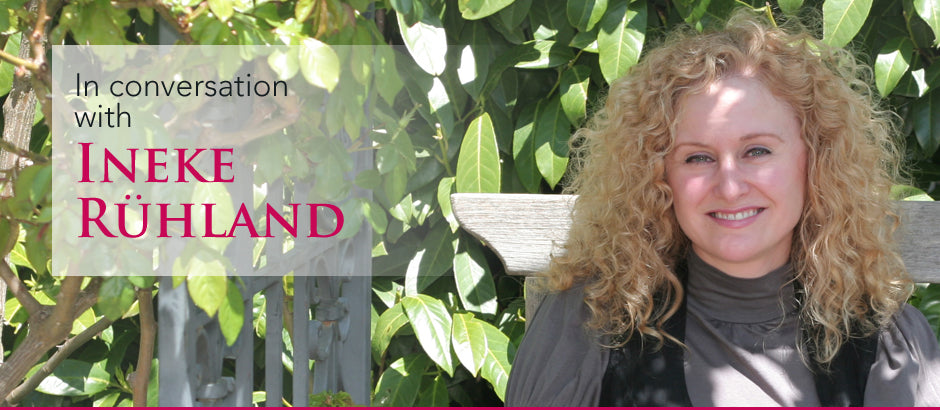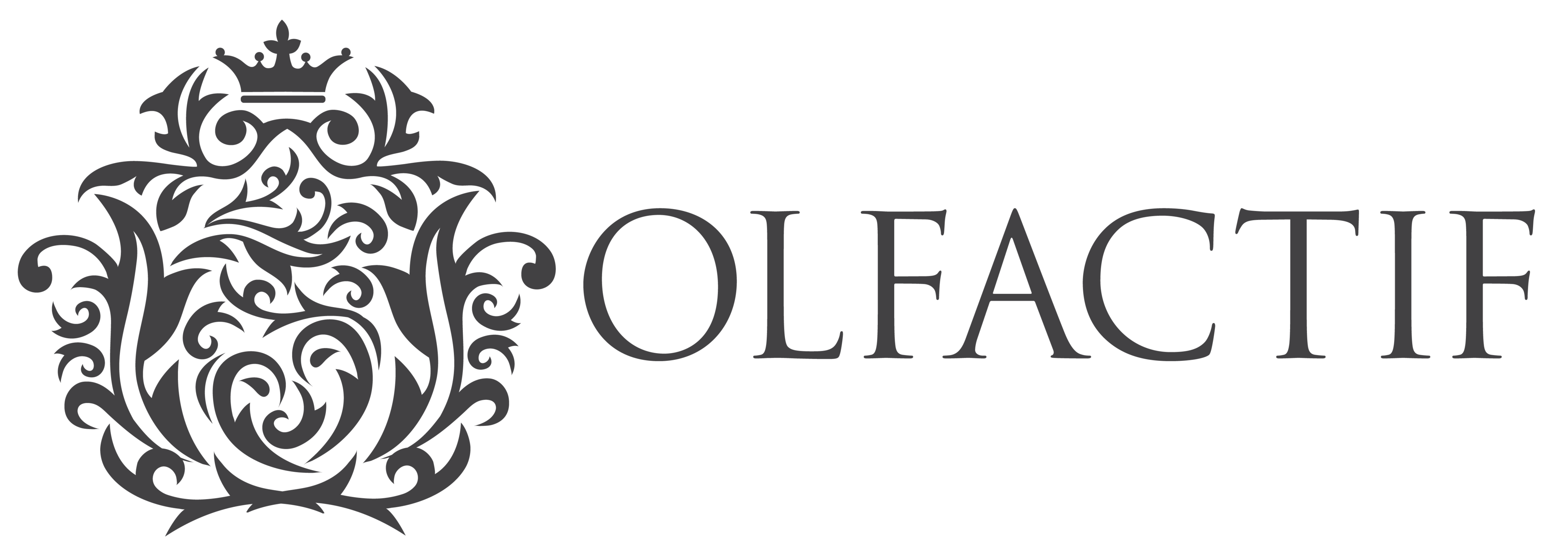In conversation with Ineke Rühland (Part I)

Ineke Rühland, author of After My Own Heart (Olfactif May 2013), is a Dutch-Canadian artisan perfumer living and working in San Francisco by way of France. Got that? It's only a sampling of the fascinating path that led Ineke to where she is today: sitting at the helm of a thriving independent business that creates scents beloved by the niche community but with so much universal appeal that she even created an exclusive line for Anthropologie.
While Ineke is every bit the classically trained perfumer -- with formal studies and a stint in France on her resume -- she took some unexpected routes to get there. In Part I of our conversation with Ineke, she talks about her childhood, her brief foray into government bureaucracy, and what a marketing education taught her about creating a successful perfume line.
Olfactif: Tell me about where you grew up.
Ineke Rühland: I grew up in Ottawa, Canada, and my parents were Dutch, so I have a dual nationality, both Dutch and Canadian. I grew up in an area that had a lot of nature, so I think that did probably influence my aesthetics in terms of plants and landscapes.
O: What did your childhood smell like?
IR: My parents had a huge garden, a really big plot of land that was almost an acre, and they were very enthusiastic plantsmen. We always had some of the Dutch things like tulips, which don’t smell, but the really big garden with lots of flowers was a big influence on me. And so I grew up with the scent of flowers and my mom was always doing cuttings from the garden for our house. I think Canada is also one of these big, wide-open countries with blue skies, and so there’s this sort of cool, crisp aspect to the air there, and I think it has a specific smell. When I go back there, I really notice that it has a different smell than California and a different kind of sky as well.
O: Did you speak Dutch when you grew up?
IR: It was my first language growing up because my parents were speaking Dutch together. I had three sisters and we’re all really close in age, so we were pretty much each other’s playmates. I would say I didn’t really learn English until I went to kindergarten, which was kind of embarrassing because I arrived in kindergarten with very little vocabulary. So to this day, I can remember making very embarrassing mistakes.
O: That’s a common story among children of immigrants. I think it’s a formative experience when you’re so young and you already feel a bit like an outsider.
IR: It’s really true. I had basic notions of English, but I remember saying to one girl, “Oh, I really like your slacks. And then she said, “These aren’t slacks. These are leotards.” When you’re a little kid, things like that are just so embarrassing for some reason. I have lots of little memories like that of learning English. But I ended up going to a bilingual kindergarten in a French school, so I learned French from a very early age, too.
O: That turned out to be very helpful for you later. So I read a funny story about you that connected the Bay City Rollers to your current work...
IR: Oh, that’s funny. There used to be all these teen magazines like—I don’t know if you remember these—Tiger Beat and 16, and in one they asked all the different Bay City Rollers, “What’s your favorite this, what’s your favorite that?” And in one of them, they asked all of the Bay City Rollers what their favorite fragrances were, and Woody Wood said White Shoulders. And so of course I marched to the drugstore. At age 13, that was my first fragrance.
O: That’s hilarious. It’s nice to hear someone who creates very technically beautiful, sophisticated scents talk about an introduction to perfume that was not so high-browed.
IR: Yeah, mine’s not terribly sophisticated. Most of the perfumers say, “Oh, my mother used to wear Guerlain.” I don’t have that story at all, really.
O: It makes your story that much better. When you were a kid, what did you think that you wanted to do as a career?
IR: When I finished my undergraduate studies in business in Ottawa, I went to work for the Senate of Canada as a clerk. And I was horrified—the whole place was so quiet, and it was such a boring job. And after a year I thought, “Wow, I really need to do something else.” So I went to Toronto and I got my MBA. And while I was doing my MBA, I did an exchange program with a business school in France.
O: Did that spark an interest in working in Europe?
IR: Yes. I was there for five months, so I rediscovered Amsterdam. I had been there a few times as a child, but I visited it while I was studying a number of times and I thought, “I really want to work in Amsterdam.” So I went to work for Unilever, a big consumer goods company. Because I had this international background, they suggested a placement with a Unilever fragrance and flavor company called Quest. I had never even heard of this industry, and that’s actually how I started in fragrances—but I was working in marketing.
O: How did you move from the business side to perfumery?
IR: I ended up in France, and then my boss told me to start thinking about what to do next. I thought the people with the most interesting jobs were the perfumers, so I asked my boss if I could retrain as a perfumer. And to my surprise, he said yes. He suggested that I go back to school part-time. And I was really lucky because ISIPCA, the little fragrance school in Versailles, was really close to where I lived and worked.
O: Did you always consider yourself to be a creative person even when you weren’t studying the arts?
IR: I think so. I come from a pretty creative family. My sister’s a painter, my dad is an antique dealer, and all of my extended relatives tend to be in the arts. And I always found the most creative things I could find within what I was doing. For instance, even in when studied business, I did marketing—which is a creative side of business. But I think everybody is creative in their own way.
O: At Quest, you had some incredible access to people who are today some of the best known names in the industry.
IR: That was really lucky because at the time there were no famous perfumers. We had one guy in our office named Pierre Bourdon who had created some really big successes like Davidoff Cool Water, so he was well-known within the industry. And the American star perfumer was Sophia Grojsman because she had created big successes like Tresor. The perfumers who taught us at ISIPCA were people like Isabelle Doyen, the perfumer at Annick Goutal, and Dominique Ropion, who turned out to be really famous later on. They weren’t full-time professors, they just did this out of the goodness of their hearts.
O: What did you learn from Dominique Ropion?
IR: He was the professor who taught us our olfactive structures. He taught us how to make all the archetypal fragrance structures like eau de colognes, green florals, and chypres. And at Quest, the perfumers that I loved working with were Christopher Sheldrake and Maurice Roucel.
O: Pretty amazing to be training at their elbows.
IR: They are the famous ones but they were also the most generous with a word of advice.
O: There were no famous perfumers, but now many people know all of those names. What do you think about that shift?
IR: The general public still doesn’t know them. Because it’s a confusing story for the consumer when they think that Marc Jacobs is in a lab mixing things up. The big consumer brands don’t want to muddy the waters by talking about a perfumer.
O: But now, in the niche world, these details have become very important to the consumer.
IR: Totally. I think that started a little bit with Frederic Malle. He was really putting the perfumers out there, on the bottles, and saying, “Here are the artists.” It was a really different way of looking at the perfume industry, and I think that’s been really influential. And the Internet made a huge difference. People want to find out more and they become very learned, and they look for all the behind-the-scenes stuff, information about process, and it becomes almost like an academic study or an intense hobby.
O: I have noticed that you have an extraordinary understanding of branding and of the importance of visual design. Does this come partly from your business and marketing background?
IR: I think it gave me more of an appreciation for how important the non-fragrance part is. These days, people are often launching things without very much thought to the non-fragrance part of the product, and they don’t get any traction. I don’t think people realize how important things like packaging and branding are. If you ask people whether that stuff is important, they’ll all say, “No, it’s all about the fragrance.” But when it comes right down to it, people won’t trust the fragrance if the other elements—the packaging, especially—don’t seem to match. And I think that subconsciously, nicer packaging will make the fragrance smell better. I really believe that. At the same time, I didn’t want to follow some formula, and doing my own little thing in California just lets me do whatever I want.
Continue to Part II of our conversation, where Ineke discusses the birth of After My Own Heart, her thoughts on classic-versus-modern, her favorite notes to work with, and how her independence leads to a different kind product than big companies tend to produce. Stay tuned.

Leave a comment
This site is protected by hCaptcha and the hCaptcha Privacy Policy and Terms of Service apply.